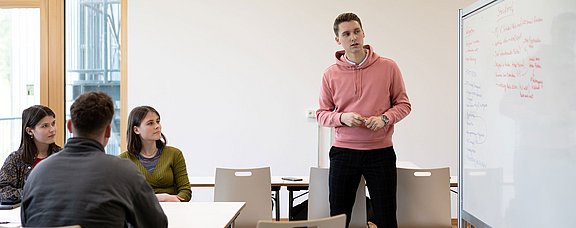
Your additional qualification for medical studies
Integrated Curriculum for Anthroposophic Medicine (IBAM)
What is the Integrated Curriculum for Anthroposophic Medicine?
The Faculty of Health at Witten/Herdecke University (UW/H) offers a special additional qualification in anthroposophic medicine. This special supplement to medical studies is unique in Germany and internationally. The Integrated Curriculum for Anthroposophic Medicine (IBAM) is a voluntary additional programme. It builds on the content of the regular medical degree programme and fits into the curriculum of the Modellstudiengang Medizin (StEx) at the UW/H.
Integrated anthroposophical accompanying studies
What is an integrated accompanying study programme?
An integrated complementary study programme is a voluntary additional offer for students who want to look at topics from a broader perspective and critically examine them.
Witten/Herdecke University offers two anthroposophical accompanying programmes: The Integrated Curriculum for Anthroposophic Medicine (IBAM) is primarily aimed at medicine students (Medicine model degree programme), while the Integrated Curriculum for Anthroposophic Psychology (IBAP) is primarily aimed at students on the Bachelor's degree programme in Psychology (B. Sc.) programme and the Master's degree programme Psychology specialising in Clinical Psychology and Psychotherapy (M. Sc.) programme.
What is meant by anthroposophic medicine and anthroposophic psychology?
Anthroposophic medicine and anthroposophic psychology are spiritual-scientific supplements to classical medicine and classical psychology. They are characterised by a pronounced focus on the patient.
Not only physical factors play a role in the diagnosis and treatment of illnesses. Mental and spiritual aspects (including perception, thinking, feeling and willpower) are also important. In anthroposophy, the sick person can and should utilise their individual capabilities (e.g. resilience, inner strength and will) to actively shape the therapy and healing process.
Forms of therapy such as eurythmy therapy (an artistic movement therapy), biography work, external applications, natural remedies and various art and body therapies support classical medicine.
How your IBAM degree programme is structured
Programme content
The Integrated Curriculum for Anthroposophic Medicine is integrated over six years into the study programme of the Modellstudiengang Medizin (StEx) over six years. of the UW/H. At the beginning, the focus is on a holistic understanding of the human being (anthropology) and a comprehensive perspective that combines subjects such as anatomy, physiology and biochemistry (organology).
Holistic medical studies
The Integrated Curriculum for Anthroposophic Medicine (IBAM) is divided into three study phases - in line with the regular medical degree programme. The content is based on Rudolf Steiner's ideas for the further development of medical studies. The study programme covers all aspects of nature, man and disease.
The aim of the programme is to train perception, thinking, feeling and willing in medical terms as well as to develop therapeutic skills and a medical attitude. Various art, movement and manual therapies are explored throughout the programme.
An important aspect of the IBAM is the joint organisation of the course by lecturers and students as well as reflection on their own professional development. This is reflected, for example, in the Curriculum Committee, in plenary sessions, feedback rounds and development discussions.
IBAM process and phases
The IBAM accompanies students over the entire programme duration of six years (60 credit points). It is divided into the pre-clinical, clinical and practical year study sections - analogous to the Modellstudiengang Medizin (StEx).
Pre-clinical phase (1st - 4th semester): Finding an overview and orientation and understanding connections
- Basic aspects of an in-depth science of humans and their organs
- Development of a general understanding and sense of nature
- Understanding the relationship between humans and the natural kingdoms as a basis for finding remedies
Clinic (5th - 10th semester): Gain practical experience
- Knowledge & skills in clinical internships lasting several weeks
- Principles of the course of life and the development of disease
- Therapeutics (medicinal and non-medicinal)
- finding remedies and pharmaceutical processes
- Spiritual foundations of anthroposophic medicine
- Suggestions for self-guided further training of skills and medical personality
Practical year (11th - 12th semester): Acting and taking responsibility
- work as a real team member in the Herdecke Community Hospital on one of the training wards for the practical year (PJ) and take responsibility for the care of patients - from admission to discharge
- make a contribution to comprehensive, personalised and empathetic healthcare
- Close and well-structured supervision (mentoring) by experienced doctors
- apply conventional and anthroposophic medicine together and integratively in practice
Contact hours & recognition
The time required per week is four semester hours (three hours) and two additional weekend days per semester if all the courses offered are attended. Some courses, especially the practical work placements in hospitals, can be fully credited towards the regular medical degree programme.
Using anthroposophically extended medicine responsibly
The aim of training at IBAM is to systematically prepare doctors to work responsibly with anthroposophically extended medicine.
A deep understanding of the human being is developed for integrative medical patient care in interdisciplinary teams. The focus here is on the tasks and functions of the human organism and its organs in conjunction with the mental and spiritual aspects of health and illness, as well as the corresponding therapeutic options. Remedies also include non-medicinal procedures. Another important part of the training is the development of an inner "medical training path" in order to strengthen the ability to help the sick person.
The training is geared towards
- a medicine that recognises body, soul and spirit and takes them into account in its therapy
- the individuality of the patient and support in coming to terms with the illness and their own destiny and developing further
- promoting patient autonomy and taking responsibility for their own health
- building a dialogue-based relationship with the patient
- the targeted use of anthroposophical therapies such as natural remedies, external applications, artistic therapies, eurythmy therapy, biographically oriented counselling sessions
- Reflection on medical practice and rational judgement on the effectiveness of remedies
- personal and medical development
University certificate
It is possible to apply for the national and international certificate "Anthroposophic Physician" from the Society of Anthroposophic Physicians in Germany after completing your studies. In addition to the university certificate, you will also need proof of at least two years of medical experience in a clinic and/or practice.
Programme content
The Integrated Curriculum for Anthroposophic Medicine is integrated over six years into the study programme of the Modellstudiengang Medizin (StEx) over six years. of the UW/H. At the beginning, the focus is on a holistic understanding of the human being (anthropology) and a comprehensive perspective that combines subjects such as anatomy, physiology and biochemistry (organology).
Holistic medical studies
The Integrated Curriculum for Anthroposophic Medicine (IBAM) is divided into three study phases - in line with the regular medical degree programme. The content is based on Rudolf Steiner's ideas for the further development of medical studies. The study programme covers all aspects of nature, man and disease.
The aim of the programme is to train perception, thinking, feeling and willing in medical terms as well as to develop therapeutic skills and a medical attitude. Various art, movement and manual therapies are explored throughout the programme.
An important aspect of the IBAM is the joint organisation of the course by lecturers and students as well as reflection on their own professional development. This is reflected, for example, in the Curriculum Committee, in plenary sessions, feedback rounds and development discussions.
IBAM process and phases
The IBAM accompanies students over the entire programme duration of six years (60 credit points). It is divided into the pre-clinical, clinical and practical year study sections - analogous to the Modellstudiengang Medizin (StEx).
Pre-clinical phase (1st - 4th semester): Finding an overview and orientation and understanding connections
- Basic aspects of an in-depth science of humans and their organs
- Development of a general understanding and sense of nature
- Understanding the relationship between humans and the natural kingdoms as a basis for finding remedies
Clinic (5th - 10th semester): Gain practical experience
- Knowledge & skills in clinical internships lasting several weeks
- Principles of the course of life and the development of disease
- Therapeutics (medicinal and non-medicinal)
- finding remedies and pharmaceutical processes
- Spiritual foundations of anthroposophic medicine
- Suggestions for self-guided further training of skills and medical personality
Practical year (11th - 12th semester): Acting and taking responsibility
- work as a real team member in the Herdecke Community Hospital on one of the training wards for the practical year (PJ) and take responsibility for the care of patients - from admission to discharge
- make a contribution to comprehensive, personalised and empathetic healthcare
- Close and well-structured supervision (mentoring) by experienced doctors
- apply conventional and anthroposophic medicine together and integratively in practice
Contact hours & recognition
The time required per week is four semester hours (three hours) and two additional weekend days per semester if all the courses offered are attended. Some courses, especially the practical work placements in hospitals, can be fully credited towards the regular medical degree programme.
Using anthroposophically extended medicine responsibly
The aim of training at IBAM is to systematically prepare doctors to work responsibly with anthroposophically extended medicine.
A deep understanding of the human being is developed for integrative medical patient care in interdisciplinary teams. The focus here is on the tasks and functions of the human organism and its organs in conjunction with the mental and spiritual aspects of health and illness, as well as the corresponding therapeutic options. Remedies also include non-medicinal procedures. Another important part of the training is the development of an inner "medical training path" in order to strengthen the ability to help the sick person.
The training is geared towards
- a medicine that recognises body, soul and spirit and takes them into account in its therapy
- the individuality of the patient and support in coming to terms with the illness and their own destiny and developing further
- promoting patient autonomy and taking responsibility for their own health
- building a dialogue-based relationship with the patient
- the targeted use of anthroposophical therapies such as natural remedies, external applications, artistic therapies, eurythmy therapy, biographically oriented counselling sessions
- Reflection on medical practice and rational judgement on the effectiveness of remedies
- personal and medical development
University certificate
It is possible to apply for the national and international certificate "Anthroposophic Physician" from the Society of Anthroposophic Physicians in Germany after completing your studies. In addition to the university certificate, you will also need proof of at least two years of medical experience in a clinic and/or practice.
Basic and educational research
IBAM conducts research in various areas of basic and educational research in particular. IBAM thus contributes to the research specialisation "Integrative and personalised/person-centred healthcare" at Witten/Herdecke University.
Contact us
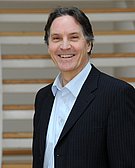
Prof. Dr. med.
Friedrich Edelhäuser
Management
Faculty of Health (School of Medicine) | Integrated Curriculum for Anthroposophic Medicine (IBAM)
Gerhard-Kienle-Weg 4
58313 HerdeckeRoom number: Haus C / EG

Dr.
Christian Scheffer
Management
Faculty of Health (School of Medicine) | Integrated Curriculum for Anthroposophic Medicine (IBAM)
Alfred-Herrhausen-Straße 50
58455 Witten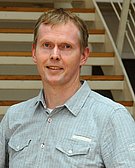
Prof. Dr. rer. nat.
Dirk Cysarz
Management
Faculty of Health (School of Medicine) | Integrated Curriculum for Anthroposophic Medicine (IBAM)
Gerhard-Kienle-Weg 4
58313 HerdeckeRoom number: Haus C / EG
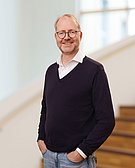
Dr.
David Hornemann von Laer
Employee
Faculty of Health (School of Medicine) | Integrated Curriculum for Anthroposophic Medicine (IBAM)
Alfred-Herrhausen-Straße 50
58448 WittenRoom number: NB-1.066
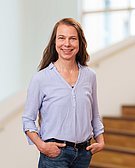
Dr med.
Sonny Jung
Employee
Faculty of Health (School of Medicine) | Integrated Curriculum for Anthroposophic Medicine (IBAM)
Gerhard-Kienle-Weg 4
58313 Herdecke
M.A.
Diane Keyes
Employee
Faculty of Health (School of Medicine) | Integrated Curriculum for Anthroposophic Medicine (IBAM)
Alfred-Herrhausen-Straße 50
58455 Witten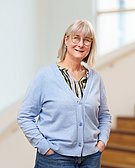
Nicole Lampe
Employee
Faculty of Health (School of Medicine) | Integrated Curriculum for Anthroposophic Medicine (IBAM)
Gerhard-Kienle-Weg 4
58313 HerdeckeRoom number: D. 473

Tatjana Liedtke, M. Sc.
Researcher
Faculty of Health (School of Medicine) | Integrated Curriculum for Anthroposophic Medicine (IBAM)
Alfred-Herrhausen-Straße 50
58455 WittenRoom number: D.473

Sophia Matthiessen
Employee
Faculty of Health (School of Medicine) | Integrated Curriculum for Anthroposophic Medicine (IBAM)
Gerhard-Kienle-Weg 4
58313 Herdecke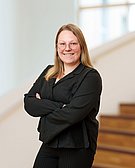
Lara Stanke
Employee
Faculty of Health (School of Medicine) | Integrated Curriculum for Anthroposophic Medicine (IBAM)
Alfred-Herrhausen-Straße 50
58455 WittenRoom number: D. 473
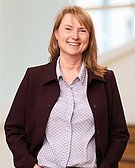
Dr. rer. medic.
Beate Stock-Schröer
Employee
Faculty of Health (School of Medicine) | Integrated Curriculum for Anthroposophic Medicine (IBAM)
Alfred-Herrhausen-Straße 50
58455 WittenRoom number: C-2.283.C
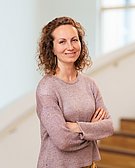
Lina Voßwinkel
Employee
Faculty of Health (School of Medicine) | Integrated Curriculum for Anthroposophic Medicine (IBAM)